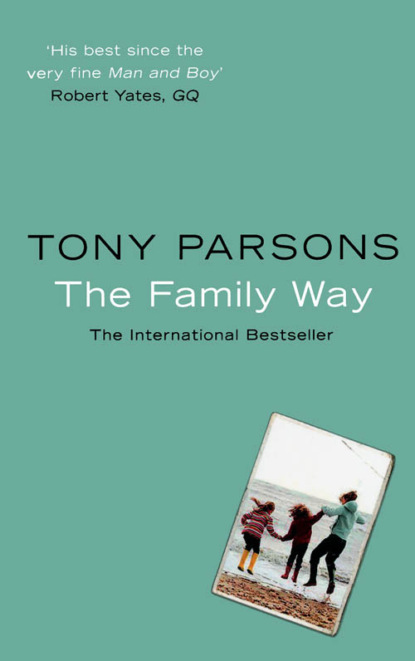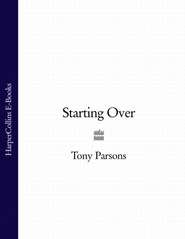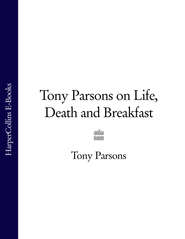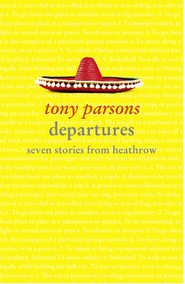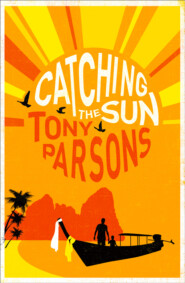По всем вопросам обращайтесь на: info@litportal.ru
(©) 2003-2024.
✖
The Family Way
Автор
Год написания книги
2018
Настройки чтения
Размер шрифта
Высота строк
Поля
He nodded, reaching for his toolbox. ‘In the business,’ he said, and she saw that slow-burning smile for the first time, ‘we call it a flat tyre.’
And soon they were away.
On her very last day at work, before she set off for her new life as a mother, her colleagues at the Soho advertising agency where she worked had gathered round with balloons, champagne and cake, and a big card with a stork on the front, signed by everyone in the office.
It was the very best day of Jessica’s working life. She stood beaming among her colleagues, some of them never having said a word to her before, and she kept smiling even when someone said perhaps she should go a little easy on the booze.
‘You know. In your condition.’
‘Oh, I’m not pregnant yet,’ Jessica said, and the leaving party was never quite the same.
Jessica’s colleagues exchanged bewildered, embarrassed looks as she beamed happily, the proud young mum-to-be – as soon as she conceived – examining the card with the stork, surrounded by the balloons and champagne, among all the pink and the blue.
That was three years ago, when Jessica was twenty-nine. She had already been married to Paulo for two years, and the only thing that had stopped them trying for a baby the moment the vicar said, ‘You may kiss the bride,’ was that Paulo and his brother were trying to start their business. It wasn’t the time for a baby. Three years ago, when the business was suddenly making money and Jessica was about to leave her twenties behind – that was the time for a baby. Except nobody had told the baby.
Three years of trying. They thought it would be easy. Now nothing was easy. Not sex. Not talking about what was wrong. Not working out what they might do next. Not feeling like complete failures when her period came around, with a pain that all the Nurofen Plus in the world could not smother.
Those paralysing, indescribable periods. That was when she felt alone. How could she ever describe that white-knuckle pain to her husband? Where would she start? What did he have to compare it with? That was one kind of pain. There were others. Traps were everywhere.
Even what should have been a small, simple pleasure like looking at pictures of her niece had Jessica in torment. One day she found herself weeping in the fifth-floor toilets of John Lewis, the floor where the baby things are sold, and she thought, am I going insane? But no, it wasn’t madness. Swabbing her eyes with toilet roll, Jessica realised that she had never had her heart broken before.
She had been hurt in the past – badly hurt, long before Paulo. But no boy or man could ever hurt her like their unborn baby did.
Jessica had believed that conception was a mere technical detail on her way to happy, contented motherhood. Now, after all this time trying, ovulation came around like a demand for rent money that she didn’t have.
Now, when the Clear Plan Home Ovulation Test ordained that the time was right, Jessica and Paulo – who had imagined that they would be young, enthusiastic lovers for ever – grimly banged away like minor offenders doing community service.
That very morning Jessica had peed on her little white plastic oracle and it had duly decreed that her 48-hour window of fertility was opening. Tonight was the night. And tomorrow night too – although Paulo would have given it his best shot, as it were, by then. It felt like a cross between a date with destiny, and an appointment with the dental hygienist.
Paulo was settling down to the north London derby, a cold Peroni in his hand. He looked up as she entered the room, and the sight of his face made her heart give an old familiar pang. Although their sex life was now performed with a kind of numbing obligation, as if it were a form of particularly tiresome DIY, closer to putting together self-assembly furniture than creating a new life, Jessica still loved her husband’s dark, gentle face. She still loved her Paulo.
‘I don’t know the score,’ Paulo said, sipping on his Italian beer. ‘So if you know who won, don’t tell me, Jess.’
She knew it was a goalless draw. A typical grim north London derby. But she kept it to herself.
‘I’m going up to bed now,’ said Jessica.
‘Oh, I say!’ said the man on the television.
‘Okay,’ said Paulo.
Jessica nodded at the beer. ‘Go easy on that stuff, will you?’
Paulo blushed. ‘Sure.’
‘Because…it makes you tired.’
She said it with the smallest of smiles. Like one of those jokes that are not really a joke at all. The way, thought Jessica, my mother would always let slip some unpalatable truth. The worthless old cow.
‘I know,’ said Paulo, putting down the beer. ‘I’ll be up in a minute.’
‘You’ve got to admire the spirit of these youngsters,’ said another man on TV. ‘They’re not giving up just yet.’
Something told Jessica that she had to harden her heart if she was going to get through this thing. Because what happened if the baby never came? What then? She didn’t know how she could stand it, or what kind of life she would have with Paulo, who wanted children as much as any man could want children, which was almost certainly not as much as she wanted children, or how this marriage could endure with disappointment haunting their home like a malignant lodger.
‘See you in a bit then,’ Jessica said.
‘See you soon, Jess,’ Paulo said, not quite catching her eye.
She used to drive him crazy. Now he acted as though sex was an exam he hadn’t prepared for.
‘Oh, my word,’ said the TV commentator. ‘He’s never going to get it in from there.’
A cone of golden light fell on Megan at her crowded desk.
She looked up from her computer screen at the skylight in the ceiling of the tiny room. To Megan it looked like a window in the kind of prison where they locked you up and threw away the key. The light and noise that filtered down indicated another world out there but it felt a very long way away. Yet she loved this room – her very first office in her first real job. Every morning she felt a shiver of pleasure when she walked into the little room. Smiling to herself, Megan got up from her desk and climbed on her chair. She was getting good at it now.
Three times a day she stood precariously on her swivel chair, its cushion worn threadbare by the buttocks of all those who had sat there before her, and she clung to the frame of the skylight, craning her neck. If she stood on tiptoe, she could see most of the school playground that backed onto the rear of the building. Megan loved to listen to the sound the children made at playtime. They were little ones, as noisy and smooth-skinned as babies. They sounded like a flock of ecstatic birds. She realised she had never had much experience of small children. She was so used to being the youngest.
‘Doctor?’
Megan spun round, almost toppling off her chair.
A crumpled-looking woman was standing in the doorway, nervously fingering a piece of wet kitchen towel. A child in some kind of miniature football shirt was shrieking at her feet. The woman watched red-eyed as Megan descended to her desk.
‘They told me to go in, doctor. The lady on the desk.’ The woman looked shyly at the ground. ‘Nice to see you again.’
Megan’s mind was blank. She had seen so many faces recently, and so many bodies. She got a name, a date of birth and took a quick look at her notes. Then it all started to come back.
The woman had been here a few weeks ago with this same small child, who was then in his other outfit of a grubby grey vest, and chomping on a jam sandwich.
The brat had run his sticky paws through Megan’s paperwork while she examined his mother, confirming her pregnancy. The woman – Mrs Summer, although as far as Megan could tell, she wasn’t married, and she didn’t have a partner called Summer – had received the news like it was a final demand from the taxman. Not much older than Megan, who was twenty-eight, Mrs Summer was already beaten down by motherhood. The apprentice hooligan with the jam sandwich was her fourth from a rich variety of men.
‘How can I help you?’ Megan asked now, relieved that the brat seemed more subdued today.
‘There’s been some bleeding, Dr Jewell.’
‘Let’s take a look at you.’
It was an early miscarriage. The woman had been depressed by the news of the pregnancy, but this was infinitely worse. Suddenly, catching Megan off-guard, Mrs Summer seemed to be choking.
‘What did I do wrong? Why did it happen?’
‘It’s not you,’ Megan said. ‘A quarter of all pregnancies end in – Here. Please.’
Megan pushed her box of Kleenex across the desk. Mrs Summer’s scrap of kitchen towel was coming apart, and so was she. Megan came out from behind her desk and put her arms around the woman.
‘Truly, it’s not you,’ Megan said again, more gently this time. ‘The body runs its series of tests. It finds some abnormality in the embryo. Why does it happen? The honest answer is – we don’t know. A miscarriage comes out of the blue. It’s horrible, I know. The thought of what might have been.’ The two women stared at each other. ‘I’m sorry for your loss,’ Megan said. ‘I really am.’





